 Libri di Jean-Paul Sartre su Unilibro.it
)
Libri di Jean-Paul Sartre su Unilibro.it
)
|
|
2010 |
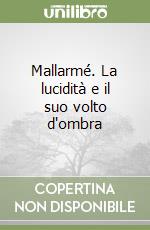 Title :
Mallarmé. La lucidità e il suo volto d'ombra
Title :
Mallarmé. La lucidità e il suo volto d'ombraAuthor: Sartre Jean-Paul; Chiuchiù L. (cur.) Publisher: Diabasis € 18,00
|
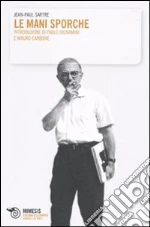 Title :
Le Mani sporche
Title :
Le Mani sporcheAuthor: Sartre Jean-Paul; Bignamini P. (cur.) Publisher: Mimesis Pièce controversa per eccellenza, Le mani sporche è un testo emblematico per comprendere la concezione dell'impegno sartriano e la sua nozione di intellettuale. La vicenda ripercorre le tappe dell'odissea esistenziale del giovane borghese Hugo, dilaniato dal contrasto tra l'appartenenza alla propria classe sociale di origine e l'aspirazione a partecipare alla lotta armata con il partito proletario. .Scritta nel 1948, alla sua rappresentazione suscitò polemiche e violenti attacchi da parte del Partito Comunista Francese, al punto da convincere Sartre a ritirare il permesso per la messa in scena. Da allora, il testo de Le mani sporche è stato allestito solo in casi giudicati opportuni dall'autore. La traduzione qui pubblicata è stata appositamente realizzata per una nuova produzione teatrale italiana, che ha debuttato a Milano nell'aprile 2010. (Introduzione di Paolo Bignamini e Mauro Carbone) € 14,00
Scontato: € 13,30
|
|
2009 |
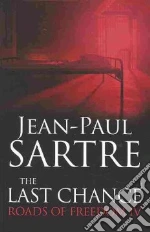 Title :
Last Chance
Title :
Last ChanceAuthor: Jean-Paul Sartre Publisher: CONTINUUM Vasey (philosophy, Mary Washington U., US) presents the first English translation of the two parts of volume four of French philosopher Sartre's (1905-80) trilogy Roads of Freedom, and that is only the beginning of the confusion. The title Les Chemins de la liberté applies to the series of novels as a whole, he explains, but each of the five novels has its own title. These two final ones, Strange Friendship and The Last Chance, were published in 1981 by Editions Gallimard, Paris. Introductory material includes a 1945 interview, and comments Sartre made on the novels. The text is followed by critical essays on the two novels and the series. Annotation ©2010 Book News, Inc., Portland, OR (booknews.com) € 23,90
|
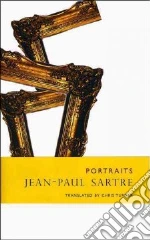 Title :
Portraits
Title :
PortraitsAuthor: Sartre Jean-paul, Turner Chris (TRN) Publisher: Seagull Books Philosopher Jean-Paul Sartre counted among his friends and associates some of the most esteemed intellectuals, writers, and artists of the twentieth century. In Portraits (Situations IV), Sartre collected his impressions and accounts of many of his notable acquaintances, in addition to some of his most important writings on art and literature during the early 1950s.
Portraits includes Sartre’s preface to Nathalie Sarraute’s Portrait of a Man Unknown and his homages to André Gide, Albert Camus, and Maurice Merleau-Ponty. The essay on Merleau-Ponty casts considerable light on the recent history of French philosophy, particularly with regard to dominant post-war political conceptions. Featured as well are lengthy studies of Sartre’s close friend Paul Nizan and of the young André Gorz that are no less revealing, as well as Sartre’s “Reply to Albert Camus,” which sealed the ideological and personal break between the two writers on its publication in 1952. Alongside these major writings are fascinating articles on Tintoretto and a number of contemporary artists, including Giacometti and Masson. Finally, Portraits concludes with two travelogue-style accounts of Sartre’s time in Italy.
This new translation by Chris Turner presents these essays in their complete form as originally intended by Sartre when he first published Situations IV in France and is thus essential reading for anyone interested in the artistic and intellectual history of the time.
€ 26,80
|
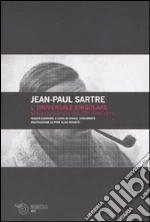 Title :
L'universale singolare. Saggi filosofici e politici 1965-1973
Title :
L'universale singolare. Saggi filosofici e politici 1965-1973Author: Sartre Jean-Paul; Kirchmayr R. (cur.) Publisher: Mimesis Che cos'è un intellettuale, qual è il suo ruolo nella nostra società? Che cosa significa essere scrittori, non solo per la propria epoca ma lasciando un'eredità storica? Se lo scrittore deve assumere un compito critico verso il proprio tempo e la propria società, può ancora pretendere di rivestire un ruolo politico? C'è un senso nell'evento chiamato 'Maggio '68' e nell'esperienza drammatica del socialismo reale che ha segnato la storia del secolo passato? Queste domande ritmano i saggi e le interviste raccolti nel volume e scandiscono la riflessione sartriana tra il 1965 e il 1973, un periodo cruciale in cui il filosofo e scrittore francese stava redigendo la biografia di Gustave Flaubert (L'idiota della famiglia), la sua ultima grande opera, continuando a svolgere una lucida osservazione critica del presente. Ne emerge una riflessione filosofica di grande densità, condotta mediante un lavoro incessante di interrogazione sul senso delle parole. Al contempo e quasi per contrasto si delinea la figura di un intellettuale a tutto campo: quella dello stesso Sartre. € 17,00
Scontato: € 16,15
|
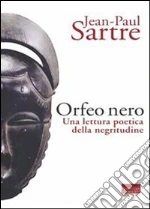 Title :
L'Orfeo nero. Una lettura poetica della negritudine
Title :
L'Orfeo nero. Una lettura poetica della negritudineAuthor: Sartre Jean-Paul Publisher: Marinotti 'Orfeo nero' è un saggio di straordinaria efficacia lirica, e forse il meno conosciuto dal pubblico italiano, scritto da Sartre nel 1948 come introduzione all'Antologia della nuova poesia negra e malgascia di lingua francese curata dal celebre poeta senegalese Léopold Senghor, premio Nobel per la letteratura nel 1968. Sensibile al fascino di queste poesie dei neri francofoni, alle loro grida accorate contro l'inumana e gratuita sofferenza, al loro doversi esprimere nella lingua del colonizzatore per poter comunicare il loro diritto di esistere come neri, Sartre è stato uno dei pochi intellettuali dell'epoca ad avere avuto il coraggio di condannare le politiche espansionistiche delle grandi potenze del secondo dopoguerra. Il tema centrale di questo saggio sartriano è la 'negritudine', che trasforma queste pagine in un programma sociale, politico e filosofico. La negritudine è colta da Sartre come 'nudità senza colore', come particolare atteggiamento affettivo nei confronti del mondo e al contempo come rimorso e speranza dell'intera cultura occidentale. Sartre reclama in questo saggio un rinnovamento del linguaggio filosofico e designa l'essenza della creazione poetica come scacco e distruzione della prosa: poesia straordinaria, come gli effetti travolgenti che escono dalle mani dei poeti africani. € 10,00
Scontato: € 9,50
|
||
|
2008 |
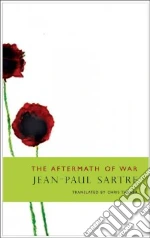 Title :
The Aftermath of War, Situations III
Title :
The Aftermath of War, Situations IIIAuthor: Sartre Jean-Paul, Turner Chris Publisher: Seagull Books Situations III, published in English for the first time in the form that Sartre himself gave to the collection, contains essays from the philosopher's most creative period, 1945-49. The first section, comprising articles written at the end of World War II and published variously in Paris, New York and London, conveys Sartre's immediate post-War reflections on collaboration, resistance and liberation. Part Two brings together the most telling of the pieces that reflect his long trip to the USA in January-May 1945. After a lucid philosophical exposition of the failings of philosophical materialism in Part Three, Sartre focuses in the fourth section on the new revolutionary poetry of 'Negritude' in the famous long essay 'Black Orpheus'. Part Five is devoted to meditations on the visual arts, with penetrating essays on the work of Alberto Giacometti and Alexander Calder, both of whom Sartre knew well. € 17,00
|
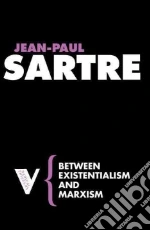 Title :
Between Existentialism and Marxism
Title :
Between Existentialism and MarxismAuthor: Jean-Paul Sartre Publisher: VERSO This book presents a full decade of Sartre's work, from the publication of the Critique of Dialectical Reason in 1960, the basic philosophical turning-point in his postwar development, to the inception of his major study on Flaubert, the first volumes of which appeared in 1971. The essays and interviews collected here form a vivid panorama of the range and unity of Sartre's interests, since his deliberate attempt to wed his original existentialism to a rethought Marxism.
A long and brilliant autobiographical interview, given to New Left Review in 1969, constitutes the best single overview of Sartre's whole intellectual evolution. Three analytic texts on the US war in Vietnam, the Soviet invasion of Czechoslovakia, and the lessons of the May Revolt in France, define his political positions as a revolutionary socialist. Questions of philosophy and aesthetics are explored in essays on Kierkegaard, Mallarme and Tintoretto. Another section of the collection explores Sartre's critical attitude to orthodox psychoanalysis as a therapy, and is accompanied by rejoinders from colleagues on his journal Les Temps Modernes. The volume concludes with a prolonged reflection on the nature and role of intellectuals and writers in advanced capitalism, and their relationship to the struggles of the exploited and oppressed classes. Between Existentialism and Marxism is an impressive demonstration of the breadth and vitality of Sartre's thought, and its capacity to respond to political and cultural changes in the contemporary world. € 22,30
|
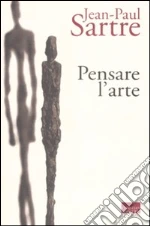 Title :
Pensare l'arte
Title :
Pensare l'arteAuthor: Sartre Jean-Paul; Marcarino F. (cur.) Publisher: Marinotti Pensare l'arte come museo immaginario delle opere più amate e frequentate da Jean-Paul Sartre: dagli americani Hare e Calder, agli artisti da lui scoperti, come Wols, fino a Giacometti, Masson, Lapoujade e Rebeyrolle, ai quali era legato da profonda amicizia. Testimoni di questi rapporti restano i saggi raccolti nel presente volume, che offrono materiale indispensabile per ripercorrere le riflessioni di Sartre sull'arte figurativa, dai Mobiles di Calder, 1946, fino ai quadri di Rebeyrolle, 1970; essi inoltre sono indicatori della sua familiarità con le opere dei maggiori esponenti delle avanguardie artistiche: Picasso, Breton e il Surrealismo, senza dimenticare Klee e Van Gogh. Come suggerisce Michel Sicard, nell'introduzione, il costante riferimento a temi quali spazio, tempo e movimento, bellezza o modernità, rivelano le coordinate di un'estetica, mai scritta da Sartre. Questo volume raccoglie tutti insieme e in versione integrale, i lavori di Sartre sull'arte contemporanea. € 22,00
Scontato: € 20,90
|
|
2007 |
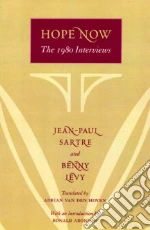 Title :
Hope Now
Title :
Hope NowAuthor: Sartre Jean-Paul, Levy Benny, Van Den Hoven Adrian (TRN), Aronson Ronald (INT) Publisher: Univ of Chicago Pr In March of 1980, Le Nouvel Observateur published the final interviews between the philosopher Jean-Paul Sartre, then blind and debilitated, and his young assistant, Benny Lévy. Readers immediately denounced the interviews as distorted and fraudulent for portraying a Sartre who had abandoned his leftist convictions, rejected his most intimate friends, and cast aside his fundamental beliefs in favor of a messianic Judaism. Sartre's supporters argued that it was his orthodox interlocutor, Lévy, who had twisted the words of the ailing philosopher. Yet, shortly before his death, Sartre confirmed the authenticity of the interviews and their puzzling content. Here presented in translation, the interviews are framed by two provocative essays by Benny Lévy, accompanied by a comprehensive introduction from noted Sartre authority Ronald Aronson, which places the interviews in biographical and philosophical perspective to demonstrate how they confirm and contribute to Sartre's overall philosophy. This absorbing volume at last contextualizes and elucidates the final thoughts of a brilliant and influential mind. € 27,60
|
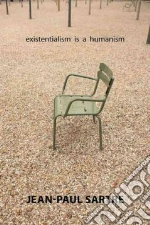 Title :
Existentialism Is a Humanism
Title :
Existentialism Is a HumanismAuthor: Sartre Jean-paul, Macomber Carol (TRN), Cohen-Solal Annie (INT), Elkaim-Sartre Arlette (CON), Kulka John (EDT) Publisher: Yale Univ Pr It was to correct common misconceptions about his thought that Sartre accepted an invitation to speak on October 29, 1945, at the Club Maintenant in Paris. The unstated objective of his lecture (?Existentialism Is a Humanism”) was to expound his philosophy as a form of ?existentialism,” a term much bandied about at the time. Sartre asserted that existentialism was essentially a doctrine for philosophers, though, ironically, he was about to make it accessible to a general audience. The published text of his lecture quickly became one of the bibles of existentialism and made Sartre an international celebrity. The idea of freedom occupies the center of Sartre's doctrine. Man, born into an empty, godless universe, is nothing to begin with. He creates his essence?his self, his being?through the choices he freely makes (?existence precedes essence”). Were it not for the contingency of his death, he would never end. Choosing to be this or that is to affirm the value of what we choose. In choosing, therefore, we commit not only ourselves but all of mankind. This edition of Existentialism Is a Humanism is a translation of the 1996 French edition, which includes Arlette Elkaïm-Sartre's introduction and a Q&A with Sartre about his lecture. Paired with ?Existentialism Is a Humanism” is another seminal Sartre text, his commentary on Camus's The Stranger. In her foreword, intended for an American audience, acclaimed Sartre biographer Annie Cohen-Solal offers an assessment of both works. € 8,90
|
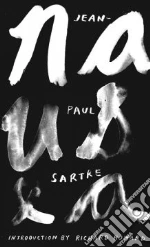 Title :
Nausea
Title :
NauseaAuthor: Sartre Jean-paul Publisher: W W Norton & Co Inc Winner of the 1964 Nobel Prize for Literature, Jean-Paul Sartre, Frenchphilosopher, critic, novelist, and dramatist, holds a position ofsingular eminence in the world of letters. Among readers and criticsfamiliar with the whole of Sartre's work, it is generally recognizedthat his earliest novel, La Nausée (first published in 1938), ishis finest and most significant. It is unquestionably a key novel of thetwentieth century and a landmark in Existentialist fiction. Nauseais the story of Antoine Roquentin, a French writer who is horrified athis own existence. In impressionistic, diary form he ruthlesslycatalogues his every feeling and sensation. His thoughts culminate in apervasive, overpowering feeling of nausea which 'spreads at the bottomof the viscous puddle, at the bottom of our time—the time of purplesuspenders and broken chair seats; it is made of wide, soft instants,spreading at the edge, like an oil stain.' Roquentin's efforts to cometo terms with life, his philosophical and psychological struggles, giveSartre the opportunity to dramatize the tenets of his Existentialistcreed. € 11,20
|
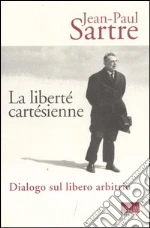 Title :
La liberté cartésienne. Dialogo sul libero arbitrio
Title :
La liberté cartésienne. Dialogo sul libero arbitrioAuthor: Sartre Jean-Paul; Pirillo N. (cur.) Publisher: Marinotti 'La liberté cartésienne' di Jean-Paul Sartre è uno scritto emblematico nella storia della filosofia del Novecento. Pubblicato nel 1946, subito dopo la conclusione della Seconda guerra mondiale, ripropone il problema del libero arbitrio a ridosso di un momento storico in cui la libertà era stata soffocata in gran parte d'Europa. Il saggio apparve nella collana 'I classici della libertà', fondata da un importante studioso dello 'spirito borghese', Bernard Groethuysen. Secondo il modello editoriale, cui partecipò anche lo storico Lucien Febvre, il saggio introduceva a un autore che documentava con i suoi scritti la continuità e la trasformazione dell'ideale 'classico' di libertà nella storia della coscienza europea. La nozione di libertà che Sartre delinea trae origine dal recupero del concetto di libertà, così come pensata da Cartesio, caratterizzata dalla possibilità e dall'autonomia della scelta. Al di là dei confini confessionali, il libero arbitrio è proposto come un valore 'transtorico', 'secolarizzato', oggi si direbbe dell'uomo multiculturale. Sartre considera Cartesio come il filosofo che in un'epoca 'autoritaria' pensa la libertà dei moderni. A lui fa risalire con la dottrina del cogito, la dottrina della democrazia. Questo testo sartriano, inedito in Italia, viene qui presentato insieme con i brani di Cartesio ai quali Sartre fa riferimento. L'edizione offre così una lettura comparata e quasi un dialogo tra due maestri del pensiero occidentale. € 15,00
Scontato: € 14,25
|
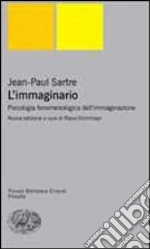 Title :
L'immaginario
Title :
L'immaginarioAuthor: Sartre Jean-Paul; Kirchmayr R. (cur.) Publisher: Einaudi Concepito assieme a 'L'immaginazione', l'altro saggio dedicato all'immagine, costituisce una pietra miliare nel panorama della fenomenologia del xx secolo e, più estesamente, delle teorie contemporanee dell'immaginario. Sulla scorta delle indagini degli anni universitari e degli approfondimenti della fenomenologia compiuti durante un soggiorno a Berlino, Sartre riprende autonomamente i cardini del pensiero di Husserl e imbocca un cammino che lo porta a una nuova definizione della coscienza nei suoi rapporti con l'immagine. La tesi radicale di questo saggio denso e meditato è quella dell'incommensurabilità di percezione e immaginazione, nodo teorico che permette a Sartre di ridefinire la natura della coscienza immaginativa e dell'immagine quale oggetto irreale. Andando oltre Husserl, Sartre conferisce così alla coscienza immaginativa uno statuto nuovo e più originario rispetto alla percezione. Questo gesto filosofico è gravido di conseguenze: da una parte viene aperta la strada a una considerazione della vita immaginaria fin nelle sue molteplici manifestazioni (dal sogno all'opera d'arte), attraverso il territorio oscuro dei rapporti tra l'immagine e il pensiero; dall'altra vengono poste le basi di una teoria della libertà dell'immaginario e di un'estetica sui generis che si realizzeranno compiutamente negli scritti filosofici e letterari caratterizzanti, nel secondo dopoguerra, la grande stagione dell'esistenzialismo francese. € 21,00
Scontato: € 19,95
|
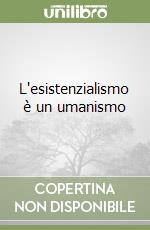 Title :
L'esistenzialismo è un umanismo
Title :
L'esistenzialismo è un umanismoAuthor: Sartre Jean-Paul Publisher: Mursia € 12,00
|
|
2006 |
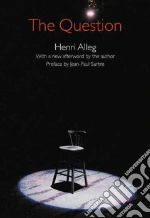 Title :
The Question
Title :
The QuestionAuthor: Alleg Henri, Calder John (TRN), Sartre Jean-paul (CON) Publisher: Bison Books Originally published in 1958, The Question is the book that opened the torture debate in France during Algeria's war of independence and was the first book since the eighteenth century to be banned by the French government for political reasons. At the time of his arrest by French paratroopers during the Battle of Algiers in June of 1957, Henri Alleg was a French journalist who supported Algerian independence. He was interrogated for one month. During this imprisonment, Alleg was questioned under torture, with unbelievable brutality and sadism. The Question is Alleg's profoundly moving account of that month and of his triumph over his torturers. Jean-Paul Sartre's preface remains a relevant commentary on the moral and political effects of torture on both the victim and perpetrator. This Bison Books edition marks the first time since 1958 that The Question has been published in the United States. For this edition Ellen Ray provides a foreword. James D. Le Sueur offers an introduction. € 15,70
|
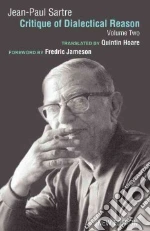 Title :
Critique of Dialectical Reason: v. 2
Title :
Critique of Dialectical Reason: v. 2Author: Jean-Paul Sartre Publisher: Verso Does history produce discernible meaning? Are human struggles intelligible? These questions form the starting-point for the second volume of Sartre's Critique of Dialectical Reason. Drafted in 1958 and published in France in 1985, this magisterial work first appeared in English in 1991 and now reappears with a major new introduction by Fredric Jameson. Volume Two's theoretical framework is a logical extension of the predecessor's. As in Volume One, Sartre proceeds by moving from the simple to the complex: from individual combat (through a perceptive study of boxing) to the struggle of subgroups within an organized group form and, finally, to social struggle, with an extended analysis of the Bolshevik Revolution. The book concludes with a forceful reaffirmation of dialectical reason: of the dialectic as 'that which is truly irreducible in action'. € 28,00
|
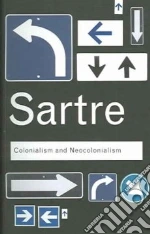 Title :
Colonialism and Neocolonialism
Title :
Colonialism and NeocolonialismAuthor: Sartre Jean-Paul, Haddour Azzedine (TRN), Young Robert J. (INT) Publisher: ROUTLEDGE Nearly forty years after its first publication in French, this collection of Sartre’s writings on colonialism remains a supremely powerful, and relevant, polemical work. Over a series of thirteen essays Sartre brings the full force of his remarkable intellect relentlessly to bear on his own country’s conduct in Algeria, and by extension, the West’s conduct in the Third World in general. Whether one agrees with his every conclusion or not, Colonialism and Neo-Colonialism shows a philosopher passionately engaged in using philosophy as a force for change in the world. An important influence on postcolonial thought ever since, this book takes on added resonance in the light of the West’s most recent bout of interference in the non-Western world. € 20,60
|
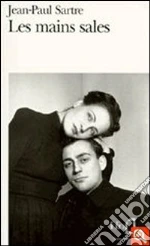 Title :
Les mains sales. Pièce en sept tableaux
Title :
Les mains sales. Pièce en sept tableauxAuthor: Sartre Jean-Paul Publisher: Gallimard Editions € 7,70
|
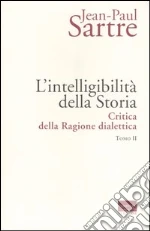 Title :
L'intelligibilità della storia. Critica della ragione dialettica. Vol. 2
Title :
L'intelligibilità della storia. Critica della ragione dialettica. Vol. 2Author: Sartre Jean-Paul; Cambria F. (cur.) Publisher: Marinotti Quest'opera, redatta tra gli anni 1958-1962 e rimasta incompiuta, costituisce il secondo tomo della Critica della Ragione dialettica. Il testo, interamente dedicato alla intelligibilità della Storia, teatro delle relazioni conflittuali intersoggettive e luogo del divenire dell'uomo, si rivela come uno tra i libri più suggestivi della filosofia di fine Millennio. Le analisi sartriane offrono l'occasione di riflettere sulla condizione del vivere e sul progressivo cammino dell'esperienza critica, indispensabile alla costituzione di una società libera ed autonoma. Sartre pone sul tappeto un nodo cruciale dei nostri tempi: il 'sociale' non è e non può essere sottoposto al 'politico' e la Storia è il terreno su cui si gioca questo conflitto. È nella lotta ed a causa di essa che gli uomini vivono la penuria, nel movimento stesso che tende ad oltrepassarla. L'esperienza critica, cui Sartre si appella, potrebbe essere la via per rintracciare l'intelligibilità diacronica delle trasformazioni storiche e il difficile rapporto tra la singolarità della praxis e la oggettività della Storia. Infine, e non meno importante nel giudizio complessivo di questo testo, è soprattutto l'immagine di se stesso che Sartre dona al lettore; l'immagine di un uomo drammaticamente coinvolto in prima persona in tutti gli avvenimenti della storia concreta, o delle infinite storie che contraddistinguono l'avventura umana; l'immagine di un Sartre che cerca di comprenderlo, ma che sa benissimo di non riuscire nell'intento. € 30,00
Scontato: € 28,50
|
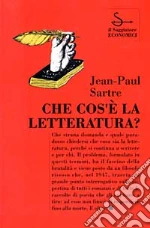 Title :
Che cos'è la letteratura?
Title :
Che cos'è la letteratura?Author: Sartre Jean-Paul Publisher: Il Saggiatore € 9,29
|
|
2005 |
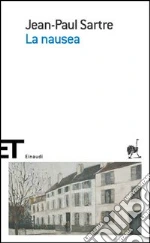 Title :
La nausea
Title :
La nauseaAuthor: Sartre Jean-Paul Publisher: Einaudi € 11,00
|
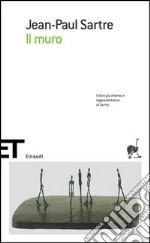 Title :
Il muro
Title :
Il muroAuthor: Sartre Jean-Paul Publisher: Einaudi Il muro uscito in Francia nel 1939, a un anno di distanza da La nausea, è probabilmente l'opera letteraria più forte e rappresentativa del grande intellettuale francese. Motivo comune dei racconti riuniti in questo volume è l'antitesi tra coraggio e viltà: una diversa attitudine, di fronte alla vita dei diversi personaggi, che un febbrile monologo interiore svela in un attimo oscuro del loro destino. Il muro dinanzi al quale i condannati troveranno la morte, le pareti delle stanze che chiudono tragici misteri sessuali e delittuosi, le storture e le ipocrisie sociali che avvelenano una coscienza al suo nascere e la preparano ad una sorte colpevole, sono i molteplici aspetti di questa realtà allucinata. € 10,50
|
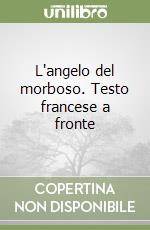 Title :
L'angelo del morboso. Testo francese a fronte
Title :
L'angelo del morboso. Testo francese a fronteAuthor: Sartre Jean-Paul Publisher: Acquaviva € 5,50
|
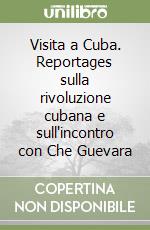 Title :
Visita a Cuba. Reportages sulla rivoluzione cubana e sull'incontro con Che Guevara
Title :
Visita a Cuba. Reportages sulla rivoluzione cubana e sull'incontro con Che GuevaraAuthor: Sartre Jean-Paul Publisher: Massari Editore € 11,00
Scontato: € 10,45
|
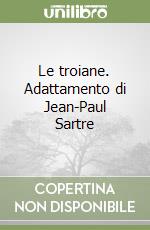 Title :
Le troiane. Adattamento di Jean-Paul Sartre
Title :
Le troiane. Adattamento di Jean-Paul SartreAuthor: Euripide; Sartre Jean-Paul; Rotundo D. (cur.) Publisher: Edizioni di Storia e Letteratura € 14,00
|
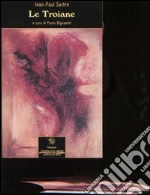 Title :
Le Troiane
Title :
Le TroianeAuthor: Sartre Jean-Paul; Bignamini P. (cur.) Publisher: Mimesis Ne 'Le Troiane', scritta a Roma nel 1964, Sartre ritorna ai classici greci, abbandonati dai tempi de 'Le mosche', e sceglie di parlare dell'attualità attraverso l'universalità della tragedia. L'autore ha sotto gli occhi la Guerra d'Algeria, ma le immagini che la sua singolare prosa poetica evoca sono quelle dei conflitti dei nostri tempi, di una barbarie che non ha epoca. 'Le Troiane' si impone come ennesima tappa di quel 'teatro dell'attualità' che Sartre ha sempre cercato di realizzare: in occasione del centenario della sua nascita (1905-2005) questa pièce mette in luce tutta la potente contemporaneità della parola sartriana. € 9,00
Scontato: € 8,55
|
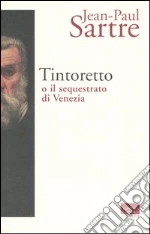 Title :
Tintoretto o il sequestrato di Venezia
Title :
Tintoretto o il sequestrato di VeneziaAuthor: Sartre Jean-Paul; Scanzio F. (cur.) Publisher: Marinotti Questo libro raccoglie in un unico volume tutti gli scritti di Sartre sul Tintoretto. Si tratta della prima edizione autorizzata di un'opera alla quale Sartre lavorò per quasi un decennio, dal 1951 ai primi anni Sessanta, senza poi darle una forma definitiva. L'interesse per Tintoretto nasce probabilmente nel corso dei frequenti viaggi compiuti da Sartre a Venezia. L'approccio alla materia è originalissimo: la storia della città e della società veneziana, i rapporti con gli altri pittori (Tiziano, Veronese) e con la pittura fiorentina sono fatti ruotare attorno alla figura del Tintoretto, che Sartre definisce 'braccato', in continua lotta con se stesso e con la sua città. 'Tintoretto è Venezia - scrive Sartre - anche se non dipinge Venezia'. € 29,00
Scontato: € 27,55
|
||
|
2004 |
 Title :
Words
Title :
WordsAuthor: Jean-Paul Sartre Publisher: Penguin group The latest additions to the }Penguin Modern Classics{ series, which continue the rebranding of the }Twentieth Century Classics{ series. € 15,70
|
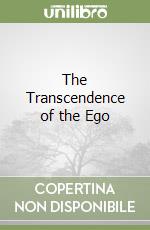 Title :
The Transcendence of the Ego
Title :
The Transcendence of the EgoAuthor: Sartre Jean-Paul Publisher: Routledge First published in France in 1936 as a journal article, The Transcendence of the Ego was one of Jean-Paul Sartre's earliest philosophical publications. When it appeared, Sartre was still largely unknown, working as a school teacher in provincial France and struggling to find a publisher for his most famous fictional work, Nausea. The Transcendence of the Ego is the outcome of Sartre's intense engagement with the philosophy of Edmund Husserl, the founder of phenomenology. Here, as in many subsequent writings, Sartre embraces Husserl's vision of phenomenology as the proper method for philosophy. But he argues that Husserl's conception of the self as an inner entity, 'behind' conscious experience is mistaken and phenomenologically unfounded. The Transcendence of the Ego offers a brilliant diagnosis of where Husserl went wrong, and a radical alternative account of the self as a product of consciousness, situated in the world. This essay introduces many of the themes central to Sartre's major work, Being and Nothingness: the nature of consciousness, the problem of self-knowledge, other minds, anguish. It demonstrates their presence and importance in Sartre's thinking from the very outset of his career. This fresh translation makes this classic work available again to students of Sartre, phenomenology, existentialism, and twentieth century philosophy. It includes a thorough and illuminating introduction by Sarah Richmond, placing Sartre's essay in its philosophical and historical context. € 26,20
|

|

|

|

|